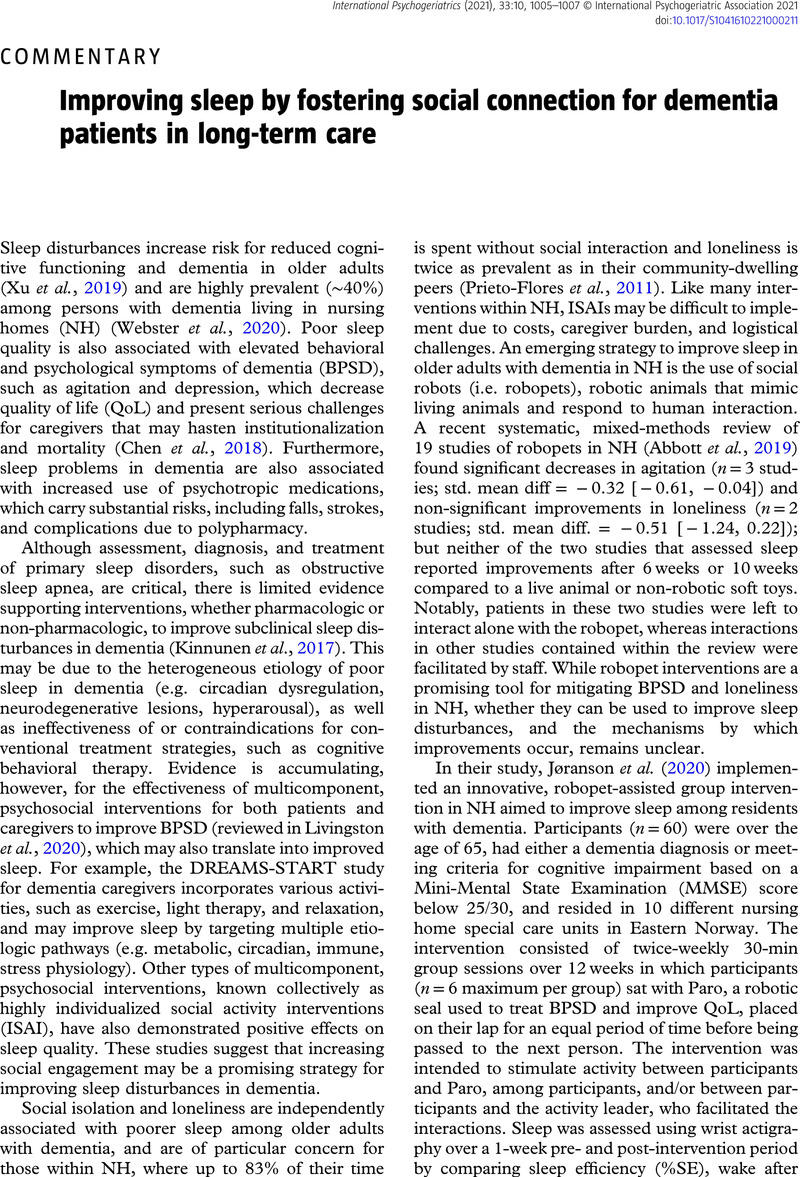Crossref Citations
This article has been cited by the following publications. This list is generated based on data provided by Crossref.
Aryankhesal, Aidin
Blake, Jessica
Wong, Geoff
Megson, Molly
Briscoe, Simon
Allan, Louise
Broomfield, Niall M
Eastwood, Zenahrai
Greene, Leanne
Hilton, Andrea
Killett, Anne
Lazar, Alpar S
Litherland, Rachael
Livingston, Gill
Maidment, Ian
Reeve, Joanne
Rook, George
Scott, Sion
Um, Jinpil
van Horik, Jayden
and
Fox, Chris
2024.
Sleep disturbance in people living with dementia or mild cognitive impairment: a realist review of general practice.
British Journal of General Practice,
Vol. 74,
Issue. 741,
p.
e233.



